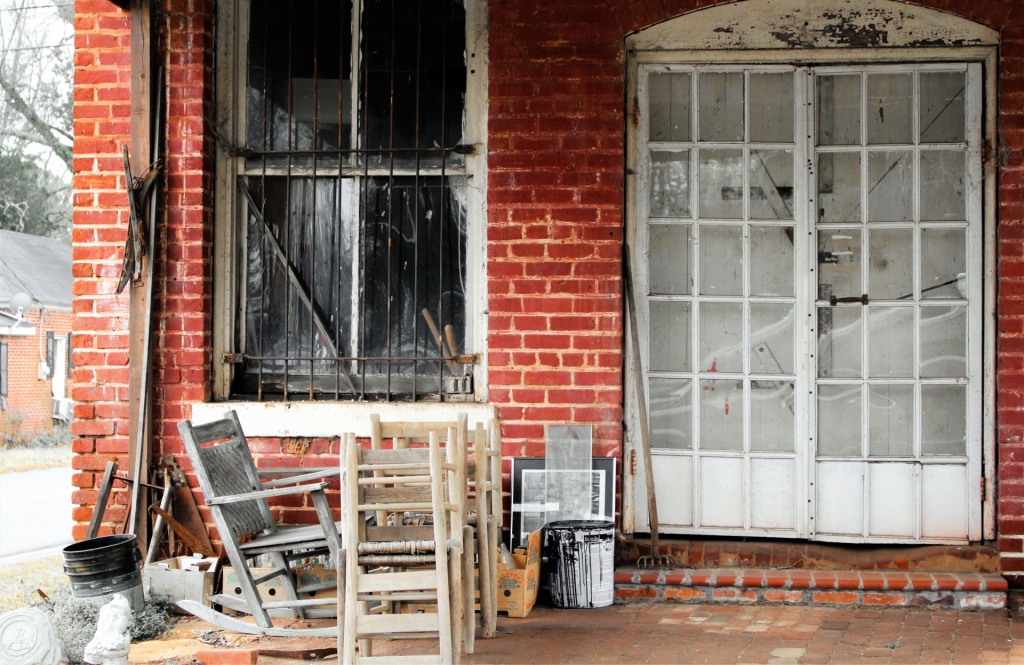Advantages of Selling a House As-Is
Selling your house "as is" offers a straightforward and often quicker way to move forward with your life. Here’s why many homeowners find this option appealing:
1. Quick Sale: Selling as-is can speed up the sale process significantly. Without the delays of staging and repairs, your home can go from listed to sold much faster than the traditional route. This is especially helpful if you're in a hurry to relocate or settle an estate.
2. No Repair Costs: One of the biggest headaches in selling a home is handling repairs. By selling as-is, you bypass this step entirely, saving not just money but also the stress and time it would take to fix things up. It’s straightforward—you sell your home in its current condition.
3. Attracting Cash Offers: Cash buyers are often attracted to as-is properties because they can handle repairs themselves and are looking for a quicker transaction. This can mean a smoother and faster closing process without the uncertainties of buyer financing.
4. Less Negotiation Hassle: When you sell as-is, you set clear expectations from the start. There’s less negotiation over repairs after inspections since buyers know what to expect upfront. This clarity can lead to a more direct and stress-free negotiation process.
Choosing to sell as-is can offer a simpler, less costly, and faster path to selling your home, which is ideal if you prefer a straightforward transaction without the usual fuss.
Disadvantages of Selling As-Is
While selling your house "as is" simplifies the process, it's important to consider the potential drawbacks that could influence your decision:
1. Lower Sale Price: Homes sold as-is often attract lower offers. Buyers factor in the cost of repairs they will need to handle, which can significantly impact the final sale price. Essentially, you might save on repair costs but end up receiving less for your home overall.
2. Limited Buyer Pool: The condition of an as-is property may deter many traditional buyers who are looking for a move-in-ready home. This narrows your pool primarily to investors and those looking for fixer-uppers, which can limit your market reach.
3. Inspection Issues: Selling as-is doesn’t mean skipping the inspection, and this step can uncover more problems than expected. Such discoveries can scare off buyers or lead to renegotiations, potentially complicating what was meant to be a simple sale.
4. Financing Hurdles for Buyers: Some lenders are hesitant to finance as-is sales without substantial repairs, which can limit buyer options and prolong the selling process.
Each of these points highlights the trade-offs involved in choosing the as-is route. It's crucial to weigh these potential disadvantages against the benefits of a quick and straightforward sale, ensuring you make the best decision for your situation.
Understanding the Impact on Property Value
Understanding the impact on property value when selling your house "as is" requires a deep dive into market trends and buyer perceptions that go beyond the physical aspects of the property.
According to an article published in the Journal of Real Estate Literature, it's crucial to consider the emotional and social dimensions of buyer behavior in real estate transactions. These subtle yet powerful factors can significantly affect how properties, particularly those sold 'as is,' are perceived and valued by potential buyers. For instance, in a market where buyers are plentiful and homes scarce, minor flaws might be overlooked. Conversely, in a buyer's market, the abundance of options can make as-is properties less appealing, pushing their value down.
The condition of your home also plays a pivotal role in its market value. Homes with structural issues or outdated systems often fetch lower prices because buyers factor in the cost and effort required to upgrade these homes. They typically estimate these expenses conservatively, anticipating potential complications during renovations.
Additionally, the cost of necessary repairs and renovations directly influences the selling price. Buyers considering an as-is property will adjust their offers to account for these anticipated costs. This adjustment is usually based on a thorough evaluation of the property's current state, compounded by the general sentiment and economic conditions prevailing in the market at the time of the sale.

The Closing Process for As-Is Sales
Navigating the closing process for as-is sales doesn't have to feel like trekking through a bureaucratic jungle. Here’s a straightforward look at what this journey typically involves:
Steps Involved
1. Acceptance of Offer: Once an offer is accepted, the real work begins.
2. Contract Signing: Both parties sign a contract that outlines the terms of the sale.
3. Inspections: Even as-is properties may undergo inspections if required by the buyer or mandated by law.
4. Legal Review: All legal documents are reviewed, ensuring everything is in order.
5. Title Transfer: The final step where ownership officially changes hands, completing the sale.
Seller’s Disclosure Requirements
1. Known Defects: Sellers must disclose any known issues with the property that could affect its value or livability.
2. Compliance with State Laws: Disclosure requirements can vary, so it’s important to comply with state-specific regulations.
3. Legal Protections: Proper disclosures can protect sellers from future legal claims regarding the property’s condition.
Cash Offers for Homes
Cash offers can simplify the closing process significantly. For instance, Doctor Homes specializes in providing cash offers for as-is properties, which means sellers can avoid the usual complications associated with buyer financing. Without the need for mortgage approvals or traditional loan underwriting, the process moves much faster.
Doctor Homes ensures that sellers receive a fair cash offer quickly, streamlining the final steps of inspections, legal reviews, and the immediate transfer of title, leading to a smoother and more efficient closing experience.
Negotiation Tips for As-Is Sales
Negotiating the sale of an as-is property doesn't have to feel like navigating a minefield. With the right approach, you can ensure a fair transaction that leaves both parties satisfied. Here are some essential tips:
Setting a Realistic Price
Determining a fair price for an as-is property starts with a thorough assessment of its current condition. Comparing your home to similar properties in the area that have sold "as is" can provide valuable benchmarks. Consider getting a pre-listing inspection to identify any major issues that could affect the price. This upfront honesty not only helps in setting a realistic price but also builds trust with potential buyers.
Highlighting Strengths
Every property has its selling points. Whether it's a great location, a unique architectural feature, or recent upgrades, make sure these are front and center in your listing. Highlighting the positives can shift focus from the as-is condition and spark interest from buyers who value potential over perfection.
Understanding Buyer Expectations
Buyers looking at as-is properties typically expect a deal that reflects the home's condition. They are often prepared to make repairs but will calculate these costs into their offers. Clear communication about what to expect, supported by documentation like inspection reports, can help align expectations and smooth the negotiation process.
Conclusion
Selling your house as-is might feel like you're taking a shortcut, but it's more of a strategic detour. Sure, the path comes with its bumps—like potentially lower offers and a narrower buyer pool—but the advantages can outweigh the drawbacks for many sellers. You'll skip the saga of repairs, sprint through negotiations, and possibly attract a cash buyer like Doctor Homes, making the close as swift as a cheetah. Plus, understanding the market's pulse and how your home stacks up in its current wardrobe—warts and all—can empower you to set a fair price and highlight those hidden gems that make your property special.
So, if you're ready to sell without the frills, as-is could be your ticket to a stress-free sale. Just remember, every property has its stage, and yours is no exception.
FAQs about Selling a House As Is
1. What does selling a house as-is mean?
Selling your house as-is means offering it in its current condition, flaws, and all, allowing the buyer to assume responsibility for any necessary repairs or updates after purchase.
2. Will I get less money for my home if I sell it as-is?
Typically, yes. You might accept a lower offer in exchange for a faster and more straightforward selling process when you sell as-is. It's akin to selling a used car "as-is" to avoid the hassle and cost of making it showroom-ready.
3. What are common repair and renovation costs that I might avoid by selling as-is?
Selling as-is allows you to bypass expenses like fixing a leaky roof, updating an old electrical system, or any other repairs that can be both expensive and time-consuming.
4. Do I still need to provide a seller’s disclosure if selling as-is?
Yes, transparency is key. You must disclose known issues with the property to potential buyers, ensuring there are no surprises about the home’s condition.
5. What are the main advantages of selling a house as is for cash?
Opting for a cash sale streamlines the process, sidestepping common obstacles like buyer financing delays. Companies like Doctor Homes specialize in quick cash transactions, often closing deals in just a few days, accelerating your move to the next chapter of your life.




